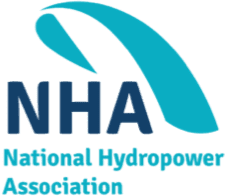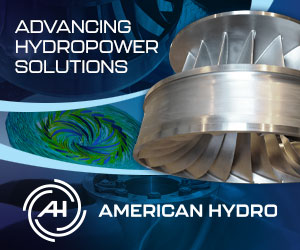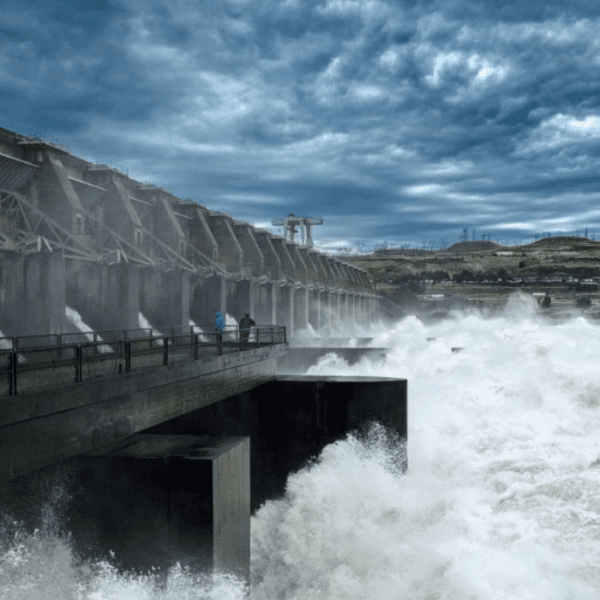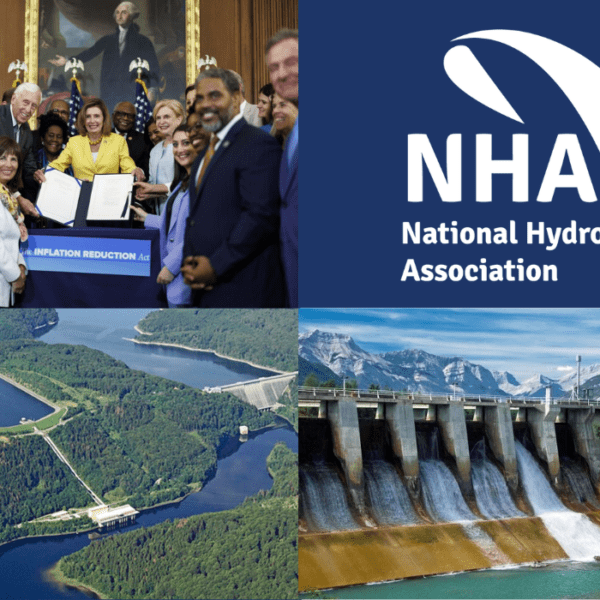A critical issue in the interpretation and application of the Clean Water Act (CWA) Section 401 is how long states have to act on certification requests, and whether that time period can be extended by various actions by a state — actions such as a requirement to withdraw and refile the application, a finding that an application was incomplete, or a denial without prejudice.
In 2019, the U.S. Court of Appeals for the District of Columbia Circuit held in Hoopa Valley Tribe v. FERC, 913 F.3d 1099, that the one-year period specified in CWA Section 401 is a bright line that cannot be extended by the state through a withdraw and refile process. Since the Hoopa Valley Tribe decision, there has been a number of additional cases litigating the application of the one-year period.
On July 2, 2021, the Fourth Circuit Court of Appeals became the most recent court to weigh in on this question of how long states have to act on certification requests. An overview of the court’s decision is provided below. Other cases on this issue are pending in the Ninth Circuit and the D.C. Circuit (see list at end of article).
The continuing litigation, and the now likely split between the circuits as to how to apply the one-year language in CWA Section 401, means that uncertainty in this area is likely to continue, and will ultimately need to be resolved by the U.S. Supreme Court.
Regulatory Background
Section 401 of the CWA requires that states are provided a time-limited opportunity to issue or deny water quality certifications for federally authorized projects, such as hydroelectric projects receiving a license from the Federal Energy Regulatory Commission (FERC or Commission). This certification is required to be issued within a reasonable time period, not to exceed one year. There has been a longstanding debate about how to interpret and apply the specified one-year time limit.
In 2019, the D.C. Circuit in Hoopa Valley Tribe found that the plain meaning of CWA Section 401 established a bright-line standard that a certification must be issued or denied by the state within one year of its receipt of an application. If no action is taken within one year, the state’s certification opportunity is waived. The ruling further provides that states cannot engage in actions to extend this deadline by a coordinated scheme with the applicant, such as requiring an applicant to withdraw and refile its application or by finding an application incomplete.
This bright-line test was reinforced by the Second Circuit’s 2021 decision in New York State Department of Environmental Conservation v. FERC, 991 F.3d 439. This interpretation was also codified in the Environmental Protection Agency’s 2020 Clean Water Act Section 401 Certification Rule (Certification Rule). See 85 Fed. Reg. 42210 (July 13, 2020).
However, the Fourth Circuit issued an opinion on July 2, 2021, that departs from these prior opinions and the EPA Certification Rule. In N.C. Department of Environmental Quality v. FERC, No. 20-1655 (McMahan Hydro), the Fourth Circuit overturned a decision by FERC that had concluded the North Carolina Department of Environmental Quality (NCDEQ) waived authority under CWA Section 401 by failing to act within one year of receiving the applicant’s request for water quality certification.
The Deep Dive: Background on the McMahan Hydro Case
On March 3, 2017, McMahan Hydroelectric, LLC (McMahan) requested a water quality certification from the North Carolina Department of Environmental Quality (NCDEQ) for the Bynum Hydroelectric Project, a 600-kW hydroelectric project seeking an original license from FERC. Based on the date of the request, NCDEQ had until March 3, 2018, to act on McMahan’s request or waive certification.
On April 26, 2017, NCDEQ requested additional information to supplement McMahan’s application, and indicated that McMahan’s application would be put on hold until it provided a water quality monitoring plan and a copy of the Commission’s draft Environmental Assessment (EA) for the project.
McMahan submitted its water quality monitoring plan to NCDEQ on December 21, 2017. On the same day, McMahan contacted NCDEQ stating that, because FERC had yet to issue its EA, it would like to discuss refiling its application for water quality certification.
NCDEQ responded, instructing McMahan to withdraw and refile its application for water quality certification, which it did on February 20, 2018.
On October 25, 2018, FERC staff issued its EA for the Bynum Project.
On January 18, 2019, at NCDEQ’s request, McMahan submitted a revised water quality monitoring plan.
On February 7, 2019, an NCDEQ employee informed McMahan of the impending one-year deadline stating “. . . [P]lease remember to send [North Carolina DEQ’s section 401 supervisor] a request to withdraw and reapply (I think the deadline is by February 20th).” On February 11, 2019, McMahan again withdrew and resubmitted its request for water quality certification.
Based on these facts, FERC held that NCDEQ waived authority under Section 401. This decision was challenged by NCDEQ. Notably, the license applicant did not intervene or participate in the appeal. Quoting the D.C. Circuit’s opinion in Hoopa Valley Tribe v. FERC, the Commission observed that “a state waives its Section 401 authority when, pursuant to an agreement between the state and applicant, an applicant repeatedly withdraws-and-resubmits its request for water quality certification over a period of time greater than one year.” The Commission reasoned that “failing to find waiver due to information requests from state agencies could encourage the states to ask applicants to provide additional data in order to give themselves more time to process certification requests, in contravention of Congress’ intent.”
On these same facts, the Fourth Circuit found that there was insufficient evidence to demonstrate that there was an agreement – or pressure from NCDEQ – for McMahan to withdraw and resubmit its Section 401 application. Rather, the court concluded that the applicant, on its own, made the decision to withdraw and resubmit. Thus, because it was not a coordinated or coerced withdrawal and resubmission scheme, FERC’s waiver determination was inappropriate, and the Fourth Circuit reversed it.
CWA Section 401: Diverging Interpretations
Although the Fourth Circuit made clear that its decision was based solely on the evidence in the record, it went out of its way to offer its own interpretation of Section 401 of the CWA. The court explained that, as long as a state “acts” on a request for Section 401 certification (which the court interprets to mean something other than issuing or denying), the state may not have waived its Section 401 authority.
According to the court, the purpose of the waiver language is to prevent inactivity by a state (as in the Hoopa Valley Tribe case), but not to deprive a state of its Section 401 certification opportunity where a state “in good faith takes timely action to review and process a certification request.”
The court asserted that NCDEQ did “act” by reviewing the application; thus, final agency action — i.e., granting or denying the request — is not required to avoid a waiver determination. The court acknowledged that no other circuit court has adopted this interpretation of Section 401 but stated that it is not inconsistent with the decision in Hoopa Valley Tribe, “which simply held that whatever ‘fails or reuses to act’ in § 401 means, the agencies there had not acted.”
Notably, the Fourth Circuit did not address EPA’s interpretation of Section 401 of the CWA articulated by the Certification Rule—a statute that EPA administers. The Certification Rule was finalized under the Trump Administration and establishes that the one-year statutory deadline is the “absolute outer bound” for states and tribes to act on requests for water quality certification under Section 401.
More to Come
The Fourth Circuit articulated a possible interpretation of CWA Section 401 that conflicts with the holdings in Hoopa Valley Tribe and New York State Department of Environmental Conservation v. FERC. It also raises questions as to how FERC may harmonize these differing interpretations for nationwide, consistent application across hydroelectric licensing.
Importantly, the Fourth Circuit’s interpretation of Section 401 is not the basis for its holding, and thus FERC has the ability to continue to follow the bright-line, one-year maximum time period for states to issue a decision on water quality certification as held by Hoopa Valley Tribe and New York State Department of Environmental Conservation v. FERC. In each of these cases, the interpretation of Section 401 as establishing a bright-line one-year standard was central to the holding.
Several additional CWA Section 401 cases are now proceeding through the courts in the D.C. and Ninth Circuits, including:
- California State Water Resources v. FERC, Case No. 20-72432 (9th Cir.)
- Village of Morrisville, Vermont v. FERC, Case No. 21-1109 (D.C. Cir.)
- Waterkeepers Chesapeake, et al. v. FERC, Case No. 21-1139 (D.C. Cir.)
- Modesto Irrigation District and Turlock Irrigation District v. FERC, Case Nos. 21-1121 (D.C. Cir.)
These cases set the stage for further clarification (or disagreement between the courts) on the one-year statutory requirement. If anything, the Fourth Circuit decision suggests that this issue may eventually reach the U.S. Supreme Court for ultimate resolution.
In the meantime, the Biden Administration has issued a Notice of Intent to revisit the Certification Rule, and the outcome of that process is likely to lead to yet more litigation and uncertainty about how the one-year period is implemented and enforced.












